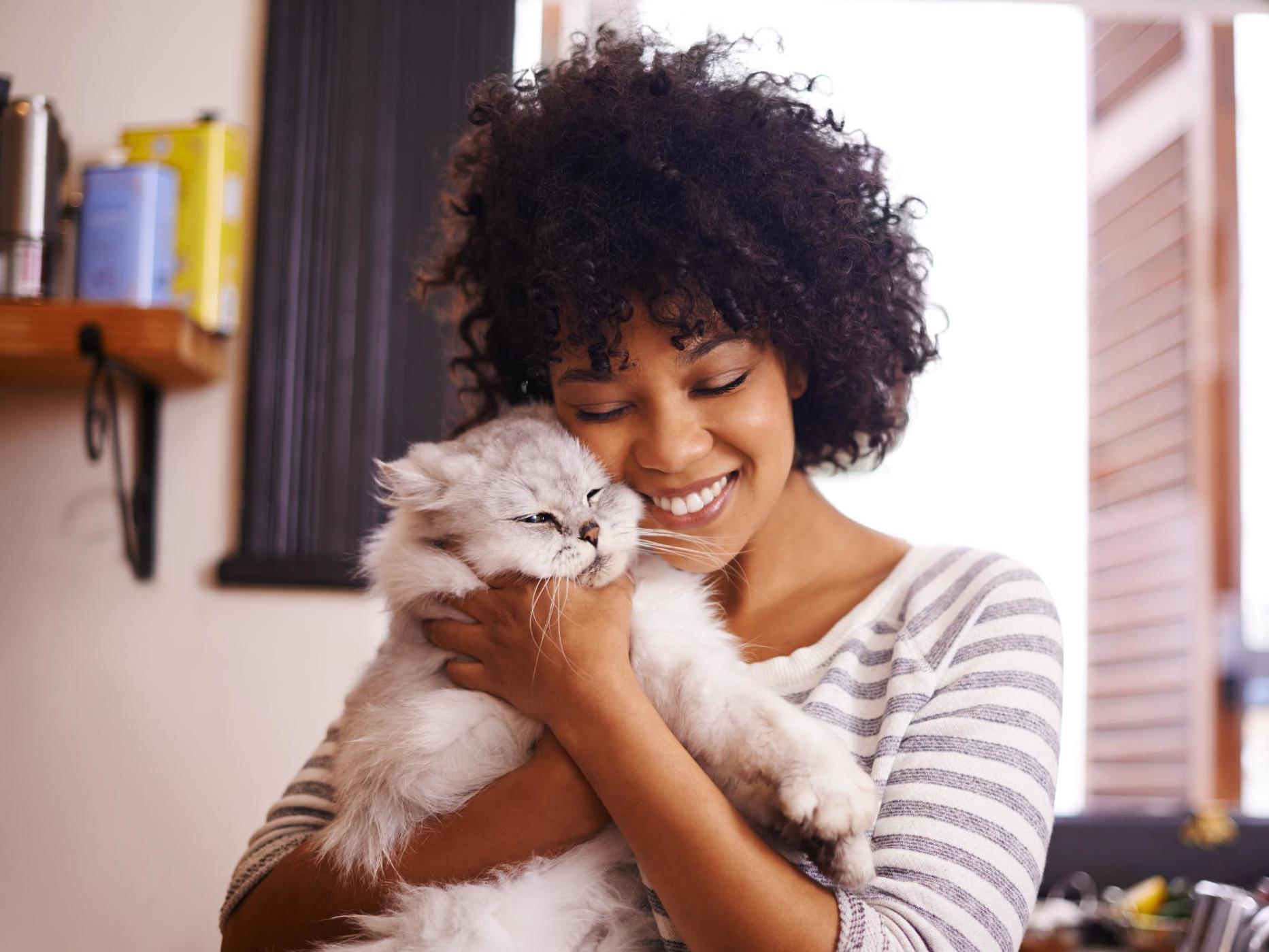Cats are just as loyal to their owners as dogs, study finds
Majority of cats show 'secure attachment' to their humans

Your support helps us to tell the story
From reproductive rights to climate change to Big Tech, The Independent is on the ground when the story is developing. Whether it's investigating the financials of Elon Musk's pro-Trump PAC or producing our latest documentary, 'The A Word', which shines a light on the American women fighting for reproductive rights, we know how important it is to parse out the facts from the messaging.
At such a critical moment in US history, we need reporters on the ground. Your donation allows us to keep sending journalists to speak to both sides of the story.
The Independent is trusted by Americans across the entire political spectrum. And unlike many other quality news outlets, we choose not to lock Americans out of our reporting and analysis with paywalls. We believe quality journalism should be available to everyone, paid for by those who can afford it.
Your support makes all the difference.Cats have developed a bad reputation for acting aloof, independent and unaffectionate to their owners.
However, a ground-breaking new experiment has proved otherwise, with researchers calling the belief that feline pets are distant “an unfair myth”.
Researchers from Oregon State University say they have found that, just like children and dogs, cats form emotional attachments to their caregivers including something known as “secure attachment” – when the presence of a caregiver helps them to feel secure and calm.
Dr Kristyn Vitale, lead author of the study, said: “Cats that are insecure can be likely to run and hide or seem to act aloof.
"There’s long been a biased way of thinking that all cats behave in this way but the majority of cats use their owner as a source of security."
Vitale continued: “Your cat is depending on you to feel secure when they are stressed.”
For the study, the team of researchers replicated situation tests that were originally designed in the 1970s to help evaluate the parent-infant bond.
But, instead of parents and infants, the scientists tested the relationship between 108 cats – including 70 kittens and 38 adult felines – and their owners.
The findings showed that the majority of cats reacted in the same way as dogs and children when they are unexpectedly left alone.
During the study, 70 cats were placed in an unfamiliar room with their owner for two minutes. The owner then left the room for a further two minutes before returning.
Researchers said 64.3 per cent of the cats showed signs of "secure attachment", stating that when their owner returned, the cats became more relaxed and divided their time into seeking attention and exploring their surroundings.
The rest of the felines either became overly clingy or completely avoided their owner – otherwise known as ”insecure attachment“.
Speaking to NBC News, Vitale said that the characteristics of a secure cat include greeting their owner and then going back to what they were doing.
"That’s how a secure human also behaves," she explained.
"It’s important for owners to think about that. When they’re in a stressful situation, how they’re behaving can actually have a direct impact on their cats’ behaviour."
In similar research, 65 per cent of children and 58 per cent of dogs showed similar signs of secure attachment to parents and owners.
The findings are published in the journal Current Biology.
Join our commenting forum
Join thought-provoking conversations, follow other Independent readers and see their replies
Comments